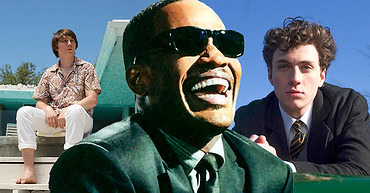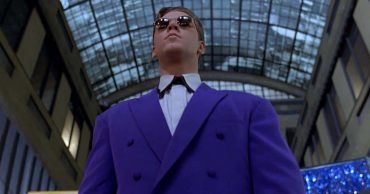Actor Alec Guinness isn’t a name many new-generation TV and film audiences might recognize. However, Guinness was one of the finest English actors during his heyday, known for his leading man roles. Interestingly, Guinness was consistently voted as one of the top 10 most popular British stars at the Box Office by the Motion Picture Herald.
Guinness was a stage and film actor, often reluctant to work in film. Between his years as an actor, Guinness served in the Royal Navy Volunteer Reserve during the Second World War. He attained the rank of Lieutenant. Guinness was exceptionally gifted as an actor, receiving several nominations and awards for his performances. Remembering his work as an on-screen actor, these are Alec Guinness’ iconic roles.
Oliver Twist (1948)

David Lean‘s directed Oliver Twist (1948) was Alec Guinness’ third feature film appearance. However, it is his second film in a credited role. Based on Charles Dickens‘ 1837 novel of the same name, Guinness portrayed the story’s secondary antagonist, Fagin. Although Oliver Twist was critically acclaimed, several audiences felt offended by Guinness’ antisemitic portrayal of Fagin. Guinness, as well as David Lean, had chosen to stick with George Cruikshank‘s original illustration of the character. Overall, Guinness’ performance was a beautiful representation of a famous novel character brought to life on screen.
The Lavender Hill Mob (1951)

The Lavender Hill Mob (1951) is ranked as the 17th greatest British film of all time by the British Film Institute. It is also listed in the Vatican film list, under Art, as one of its best 15 films. Alec Guinness was cast as the lead character, Henry “Dutch” Holland. The movie revolves around Dutch Holland, an unassuming and unambitious London bank clerk who decides to rob the bank’s gold bullion. The comedy follows his plans, associates, and his final arrests.
To be able to be cast in the movie as Dutch Holland, Guinness agreed to a lesser pay, taking only £6,000, as against his £25,000 base salary at the time. To make the robbery believable, Ealing Studios, the movie’s production company, had to ask the Bank of England for clues on how to steal £1,000,000. The final idea that the special committee set up by the Bank of England gave is used in the movie. For his performance, Alec Guinness received his first Academy Award nomination for Best Actor.
The Prisoner (1955)

Upon its release, The Prisoner (1955) became one of the year’s most controversial films. Its controversy was enough to ban it from the Venice and Cannes Film Festivals. Alec Guinness starred as its protagonist, The Cardinal. Most of the movie’s controversy stemmed from its religious themes. However, it is reportedly that Guinness’ portrayal of The Cardinal was a contributing factor that led to his conversion to Catholicism. Guinness was nominated for Best Actor in a Leading Role at the BAFTAs.
The Bridge on the River Kwai (1957)

The Bridge on the River Kwai (1957) is David Lean’s epic war film set in 1942 to 1943. The movie is based on Pierre Boulle‘s 1952 novel of the same name. The Bridge on the River Kwai became the highest-grossing movie of 1957, grossing $30.6 million on a $2.8 million budget. Alec Guinness played the British Commander, Colonel Nicholson. Before Guinness was considered for the part, American actor Spencer Tracy was considered for the part. However, Tracy turned it down, suggesting an English actor play the role. Alec Guinness won his first and only Oscar for Best Actor for his role as Col. Nicholson. He also won Best Actor in a Leading Role at the BAFTA Award and Best Actor – Motion Picture Drama at the Golden Globe Award.
The Horse’s Mouth (1958)

Filmed in Technicolor, Ronald Neame’s The Horse’s Mouth (1958) was based on Joyce Cary‘s 1944 novel of the same name. The screenplay was done by Alec Guinness, who also played the lead role as Gulley Jimson. The character is an eccentric painter who is released from his one-month jail sentence at the start of the movie. Guinness could not attend the Academy Awards to receive his Oscar because he was in England shooting The Horse’s Mouth. For his performance in The Horse’s Mouth, Guinness won the Volpi Cup for Best Actor. He was also nominated for Best Writing (Adapted Screenplay) at the Academy Awards and Best British Screenplay at the BAFTA Award.
Tunes of Glory (1960)

Tunes of Glory (1960) is set in post-Second World War and has Alec Guinness cast as Major Jock Sinclair, DSO, MM. The story follows the Major’s travail of being replaced by Lieutenant Colonel Basil Barrow (John Mills). Guinness was first offered the role of Lieutenant Colonel Basil Barrow. However, he chose to play Major Sinclair and suggested they cast John Mills as Barrow instead. Tunes of Glory was received with critical acclaim, with praises for the performances of its cast. Guinness was nominated for Best Actor in a Leading Role at the BAFTA Award.
Star Wars (1977)

George Lucas‘ Star Wars (1977), also known as Star Wars: Episode IV – A New Hope, was Alec Guinness’s most successful movie franchise. Although known to dislike reprising roles in sequels, he chose to reprise as Obi-Wan Kenobi. Besides his salary, Guinness also received 2.25% of the movie’s profits. Although initially agreed to 2%, George Lucas was so impressed with how Guinness helped keep other actors focused he offered the additional percentage.
Although one of the highest-grossing movies of all time, Guinness did not particularly enjoy playing the character of Obi-Wan Kenobi. He reprised the role in The Empire Strikes Back (1980) and Return of the Jedi (1983). His voice for the character was posthumously included in Star Wars: The Force Awakens (2015) and Star Wars: The Rise of Skywalker (2019). Besides winning Best Supporting Actor at the Saturn Awards, Guinness received nominations from major awards. He was nominated for Best Supporting Actor at the Academy Awards and Best Supporting Actor – Motion Picture at the Golden Globe Award.
Tinker Tailor Soldier Spy (1979)

Although Alec Guinness resented working on television, he agreed to play George Smiley on the BBC2 spy drama Tinker Tailor Soldier Spy (1979). The miniseries was a seven-part episode show which received positive critical reviews. The series originally aired from September 10 to October 22, 1979. Guinness reprised the role in the six-part sequel, Smiley’s People (1982). For his portrayal of the character, Guinness won Best Actor at the British Academy Television Award and was nominated for Outstanding Lead Actor in a Miniseries or a Movie at the Primetime Emmy Award.
Little Dorrit (1987)

Little Dorrit (1987) was adapted from Charles Dickens’ 1857 novel of the same name. Alec Guinness was cast as William Dorrit. Released on December 11, 1987, Little Dorrit had a running time of 343 minutes. For his performance, Guinness was nominated for Best Supporting Actor at the Academy Awards and Best Supporting Actor – Motion Picture at the Golden Globe Award.
Mute Witness (1994)

Although Alec Guinness didn’t receive any noteworthy award nomination or win, Mute Witness (1994) makes the list as the actor’s last feature film before his death. Interestingly, Guinness opted to do his scenes for free. The movie’s director, writer, and producer, Anthony Waller, unexpectedly met Guinness by chance in Hamburg in 1985. He informed Guinness of his desire to work with him.
However, since Guinness was booked for the next 18 months, they both agreed to do his scenes the next morning before Guinness left Germany. All Guinness’ scenes were shot in Germany about a decade before the movie was released. In Mute Witness, Guinness plays the movie’s villain, The Reaper. While the movie is Alec Guinness‘ last theatrical movie, it’s also a testament to his acting dedication.
 Follow Us
Follow Us




